As pet parents, encountering a situation where your cat keeps throwing up can be worrisome. While an occasional instance may not be cause for alarm, especially in kittens, repeated or severe vomiting can indicate a more serious concern. Understanding the potential causes behind why your cat keeps throwing up is crucial in addressing the situation effectively.
In this guide, we’ll explore all of this, with some helpful charts and graphics, as well as practical tips on how to care for your vomiting cat at home. Let’s get started.
Coming Up…
- What Does Your Cat’s Vomit Look Like?
- Common Causes of Vomiting in Cats
- Medical Causes of Vomiting in Cats
- Caring For a Vomiting Cat
- Dangers of Dehydration
- When Should I Call the Vet?
- FAQs
What Does Your Cat’s Vomit Look Like?
Our bodies like to tell us when something is wrong, and it’s the same for our cats. Whether it’s a change in their urine or poop or something more alarming, such as vomiting, it’s important to pay attention and know exactly what you’re looking at. The most obvious way to tell what your cat’s vomit may indicate is the color, so let’s take a look at what different colors may mean.
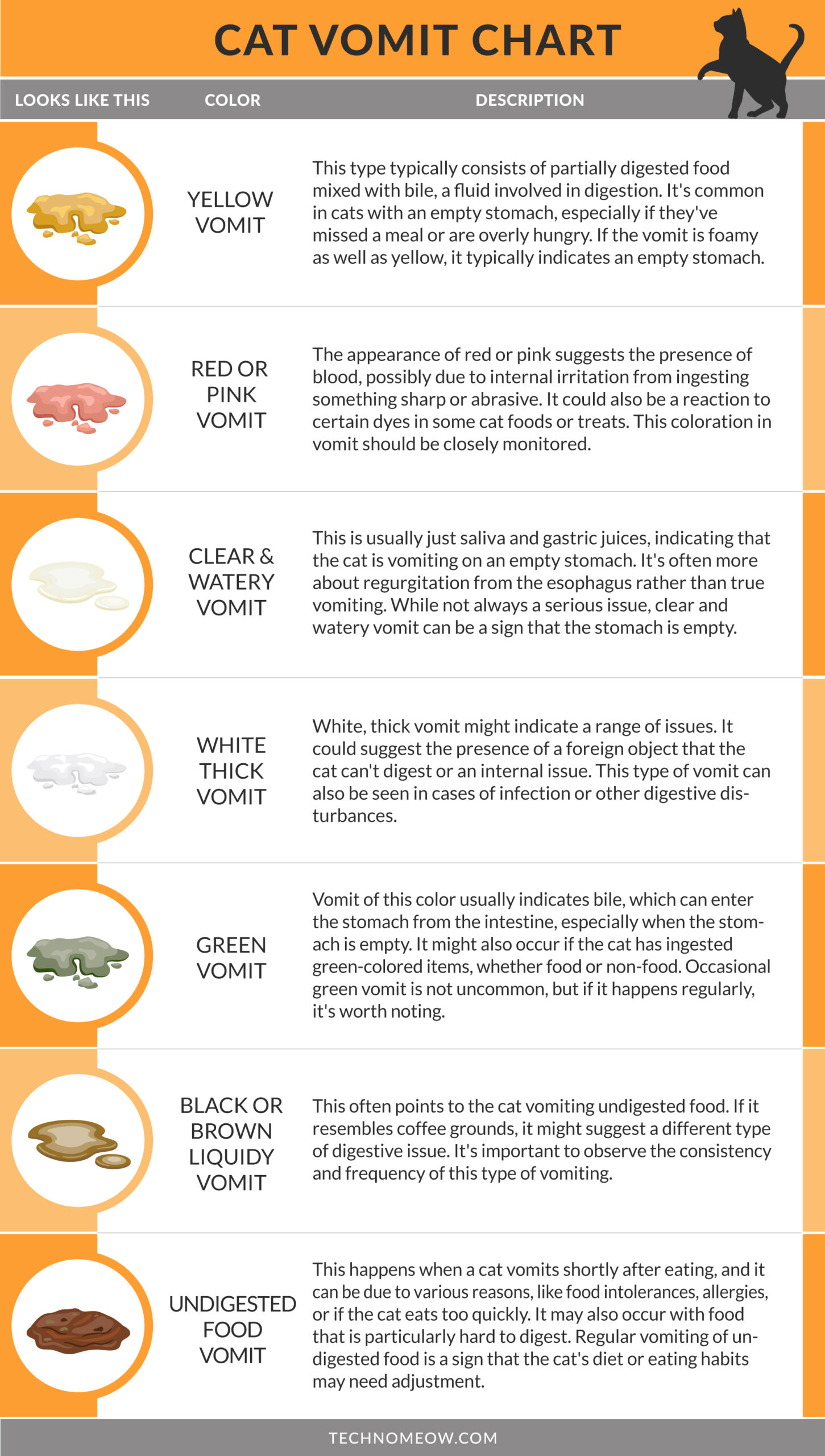
- Yellow – Partially undigested food and bile in the stomach or over-hungriness if foamy
- Red or pink – Presence of blood, possibly from foreign material or dyes in cat food/treats
- Clear & watery – Regurgitation of saliva from the esophagus or vomiting on an empty stomach
- White & thick – May indicate foreign body, parasites, infection, or disease
- Green – Possible presence of bile or ingestion of foreign material or green-colored foods
- Black or brown liquidy – May indicate undigested food or coffee ground-like may mean potential bleeding in the digestive tract
- Undigested food – This can happen with food intolerances, allergies, inflammation, and obstruction
Common Causes of Vomiting in Cats
Let’s explore the common reasons why a cat keeps throwing up and discuss methods to address this issue effectively.
Hairballs
As any owner knows, hairballs are common, frequent, and generally nothing to worry about. When your cat cleans themselves and ingests their loose fur and it builds up, they may cough, hack, or appear to throw them up. You can help your cat out by grooming them regularly. If your cat sheds excessively, consider if their diet is as good as it could be, or try a shedding supplement to reduce the amount of loose fur they have.
Eating too quickly
Eating too fast can also lead to vomiting because of the extra air that is swallowed. If your cat eats too quickly, you can try feeding them smaller, more frequent meals throughout the day or try using a slow-feeding bowl, which has little obstacles inside to slow them down when they eat. Be sure to keep your cat’s food bowls clean and feed them in a peaceful part of the house to make mealtimes stress-free.
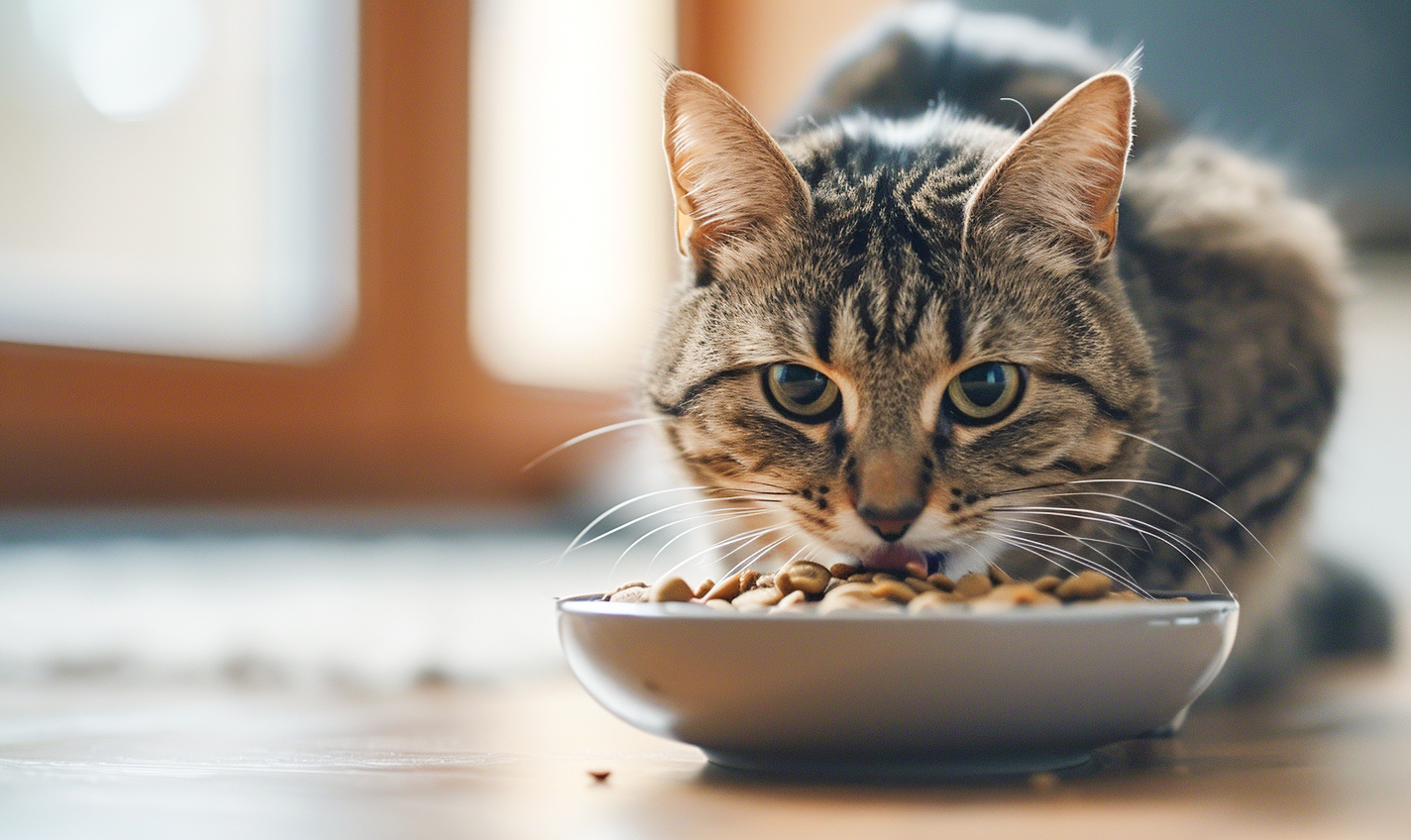
Under/overfeeding
Overeating and overwhelming the digestive system and the build-up of stomach acids from going hungry for too long can both cause vomiting, so be sure to follow feeding guidelines, especially if your cat is under or overweight. Generally speaking, adult cats should eat 1/4 – 1/2 cup of dry food or 3 to 5 ounces of wet food per 5 lbs of body weight per meal and two meals per day.
You May Like: Best Automatic Feeders For Cats
Diet issues
A diet that is too high in fat can cause vomiting because it is difficult to digest and irritates the pancreas. Be sure to feed your cat high-quality cat food that is nutritionally complete and high in protein for optimal health and wellness. Changing your cat’s diet significantly and suddenly can also irritate their digestive system; any changes to their diet should be introduced gradually.
Allergies
Food allergies can also cause vomiting. Common allergies in cats include proteins such as chicken, beef, or fish, as well as grains like wheat or corn. Other symptoms can include diarrhea and skin problems such as itching, redness, or ear inflammation. If you suspect your cat of having an allergy to something in their food, talk to your vet about hypoallergenic food or doing a limited-ingredient diet.
Stress or anxiety
Extreme stress and anxiety can also cause vomiting in cats. This can be brought on by significant life changes like moving home, loss, or periods of overstimulation such as during the Christmas season. Traumatic experiences, phobias, and separation anxiety can also cause ongoing stress, as well as a lack of exercise, social interaction, and play.
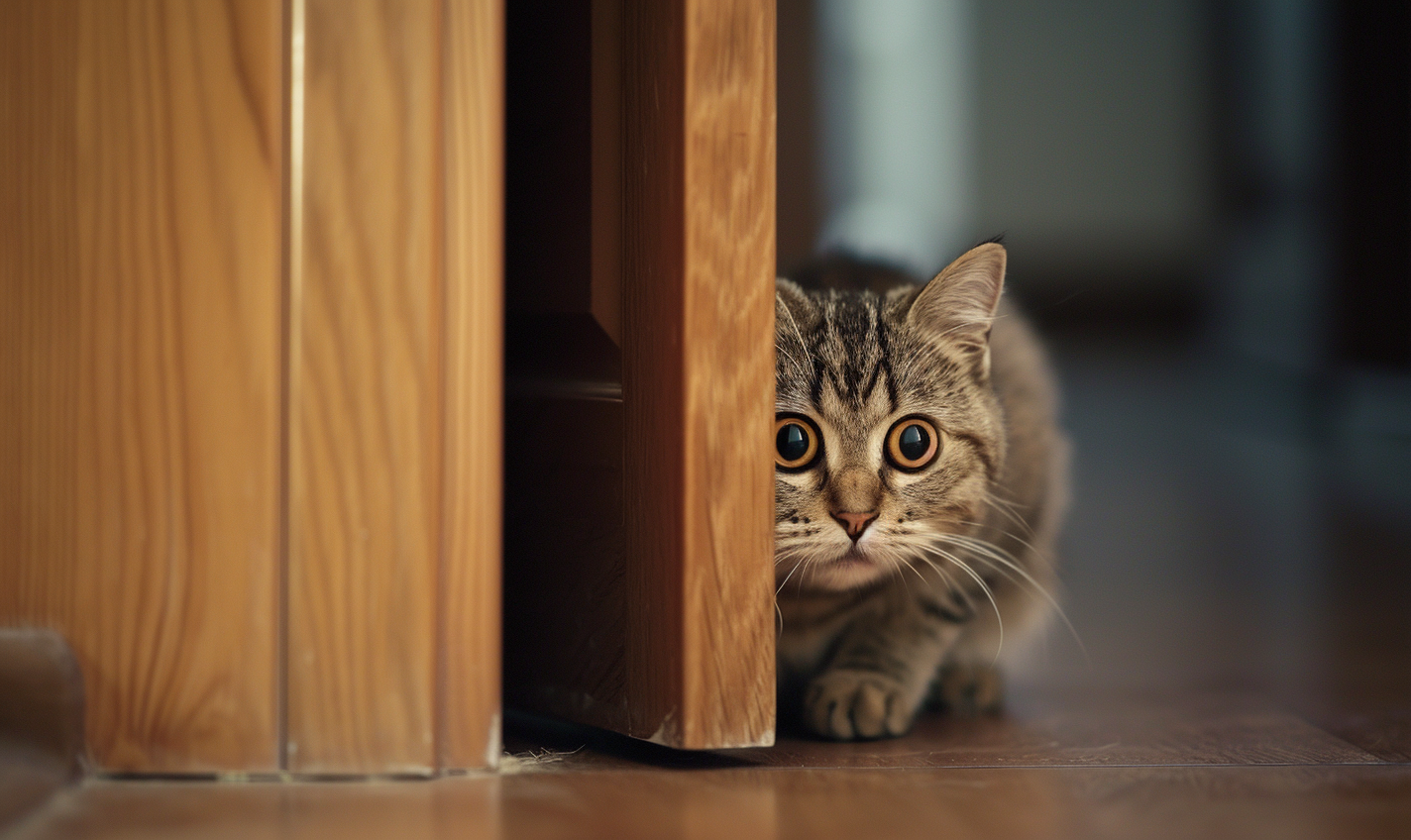
Other signs of stress include excessive grooming or aggression, an increase in shedding, and diarrhea.
Stress and anxiety in cats, often triggered by changes in their environment, can be alleviated by maintaining a consistent routine and offering plenty of tender loving care. If your cat keeps throwing up due to ongoing behavioral issues, employing positive association training and utilizing anti-anxiety aids such as supplements or plug-in diffusers can be beneficial. It’s also important to keep your cat physically active and mentally stimulated through play and interaction. Exercise wheels and engaging toys are highly recommended to promote their well-being.
Foreign objects
Swallowing a foreign object can also cause vomiting and should be checked out by a vet. The most common foreign object swallowed by cats is string. So, if your cat likes to play with string, consider if this is the culprit.
Depending on what they have swallowed, your cat may vomit as their digestive system is inflamed from the object but they may still be able to pass it. Bowel obstruction, on the other hand, is a medical emergency and means that the object has caused a blockage in the bowel. This can cause an inability to poop, as well as a lot of pain, and requires surgical removal.
Poisoning
Ingesting a poisonous or toxic substance can also cause vomiting. Common causes of poisoning in cats include ingesting toxic plants like lilies, human medications foods like chocolate or alcohol, pest control products, household cleaning products, and essential oils.
Ingesting small amounts of less serious toxins may just cause a temporary stomach upset, but if your cat ingests something dangerous, such as antifreeze, or shows more serious signs of poisoning, such as drooling, shaking, or having seizures, you must take them to the emergency vet for antidotal treatment immediately. If you’re unsure, call the Pet Poison Helpline.
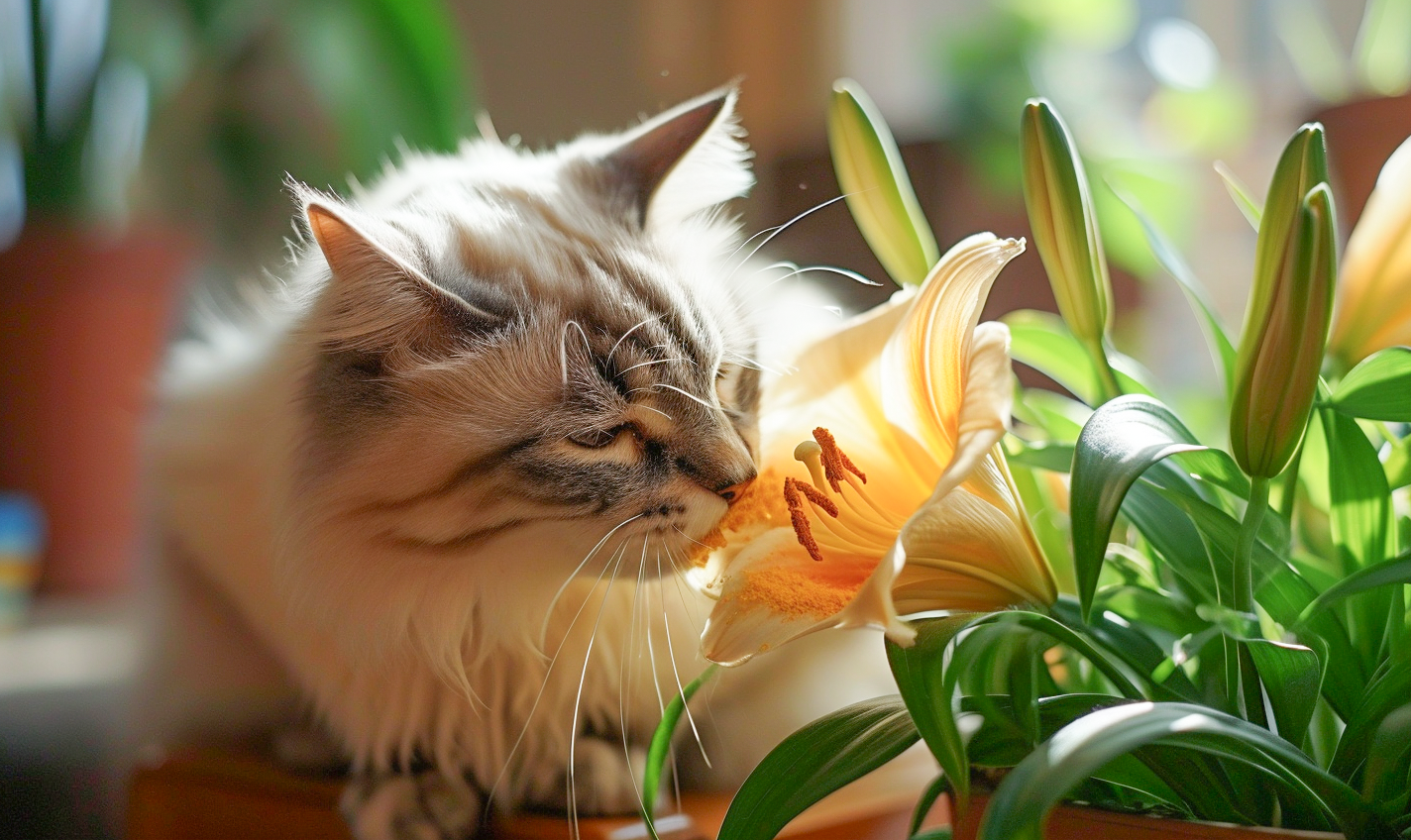
Medication
Certain medications can also cause vomiting as a side effect, such as steroids, chemotherapies, and NSAIDs like painkillers, which may pass, but if it doesn’t, you should talk to your vet about changing medications and always give your pet the recommended dosage.
Medical Causes
Let’s take a look at some of the medical causes of vomiting in cats.
Parasites
Gastrointestinal parasites, such as Tapeworms, Hookworms, Roundworms, and Giardia, are another common cause of vomiting in cats. They can also cause diarrhea and blood or mucus in the poop (see our handy cat poop reference chart here). They’re diagnosable through vet tests and treatable through anti-parasitic medications that you can buy over the counter or at the vet’s office. It’s very important to give anti-parasitic medication to your cat on a regular basis to prevent it from happening again.
Pancreatitis
Pancreatitis is a condition where the pancreas becomes inflamed, typically due to a diet that is high in fat. It can cause diarrhea, reduced appetite, and stomach pain, as well as vomiting in cats. It’s usually diagnosed through veterinary examination, but they may also want to run tests. It usually requires some dietary changes to treat, plus management of the pain and other symptoms.
Inflammatory bowel disease
Inflammatory Bowel Disease (IBD) in cats is a chronic and auto-immune gastrointestinal disease that causes chronic vomiting, diarrhea, and weight loss. While the exact cause is not known, it requires life-long management with diet and medication such as Prednisone. Although it’s not curable, with proper treatment and monitoring, a cat’s length and quality of life can be unaffected.
Urinary tract problems
Urinary tract problems like Feline Lower Urinary Tract Disease (FLUTD) and urinary tract infections (UTIs) also cause vomiting in cats, as well as difficulty urinating or painful or bloody urination. Urinary problems in cats can have several internal or external causes and treatment plans can vary from cat to cat but often include lifestyle changes and medications.
Infections
Bacterial, fungal, and viral infections can all also cause vomiting in cats, especially in vulnerable cats, such as kittens and senior cats. Other symptoms of infection can vary depending on the type of infection it is. Bacterial infections can also cause lethargy, diarrhea, and a decline in appetite, whilst viral infections, such as feline distemper and feline calicivirus, can cause both gastrointestinal and oral symptoms, and fungal infections such as aspergillosis cause respiratory issues.
Different infections have different ways of spreading, but infected cats should always be kept away from others until they are better. Depending on the type and severity, they can get better on their own or require meditation.
Pregnancy
Like humans, cats can get morning sickness while pregnant. However, if they are further along in their pregnancy, it could indicate something is wrong, so be sure to keep up with regular vet check-ups throughout your cat’s pregnancy.
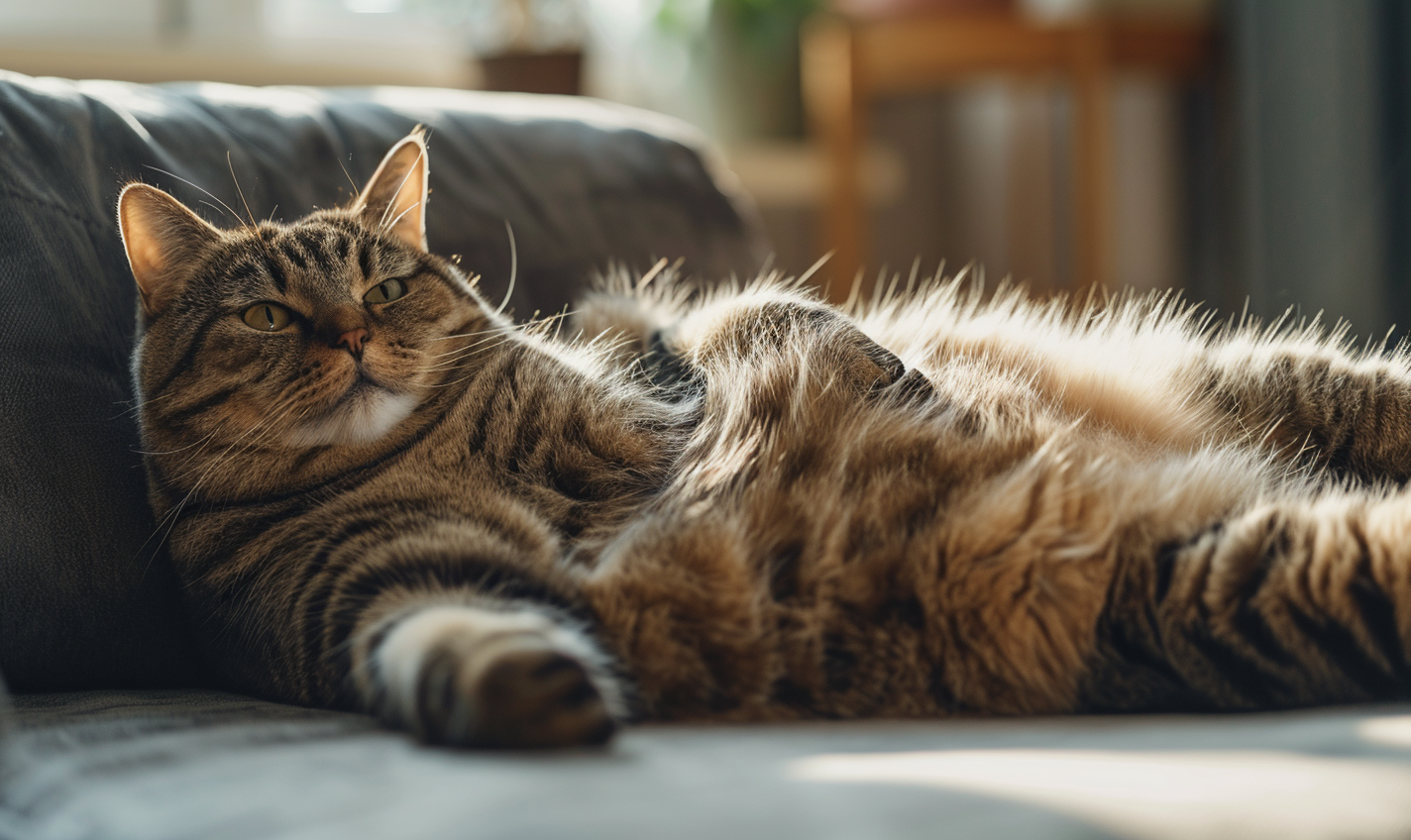
Metabolic diseases
Metabolic diseases such as diabetes, hyperthyroidism, and kidney disease can all cause vomiting, as well as changes in everyday things like appetite, thirst, energy levels, and changes in weight. Metabolic diseases require long-term management and have serious consequences if left untreated.
Neurological disorders
Neurological disorders, such as vestibular disease and brain tumors, can also cause vomiting. Other symptoms will typically include things like difficulty with balance and coordination or seizuring. These conditions can have a number of causes or even unknown causes. Diagnosing these disorders typically involves MRI or CT scans and treatment plans vary depending on the underlying cause.
Cancer
Vomiting in cats can also be associated with various types of cancer, such as lymphoma, gastrointestinal tumors, or liver cancer. Common symptoms include persistent vomiting, weight loss, lethargy, and changes in appetite. Diagnosis of cancer in cats involves blood tests, scans, and biopsies and treatment can include surgery, chemotherapy, or palliative care, depending on the cancer type and stage. Prognosis varies, but early detection improves the chances of successful treatment.
Caring For a Vomiting Cat
Vomiting can take a toll on your cat’s body, making them feel weak and dehydrated. It can also hurt their throat and stomach, regardless of what’s causing it. If your cat keeps throwing up, you should keep them well hydrated by encouraging them to take small drinks of water regularly and feeding them plain, soft food like boiled chicken and rice until the underlying cause is treated. If the issue is caused by a problem that can’t be cured or quickly cured, you may also want to ask your vet about anti-sickness medication.
Dangers of Dehydration
If your cat keeps throwing up, it can have a significant impact on their health, leading to weakness and dehydration. This repeated vomiting can be harsh on their throat and stomach. To help a cat that keeps throwing up, ensure they stay hydrated with small, regular sips of water and offer them bland, easy-to-digest food like boiled chicken and rice. Managing the situation with appropriate care is important, especially if the cause of the vomiting is not immediately resolvable.
Signs of dehydration in cats include:
- Not urinating
- Lethargy
- Dry or sticky gums
- Loss of skin elasticity
- Sunken eyes
- Panting
- Increased heart rate
An automatic cat water fountain can be highly effective in ensuring a dehydrated cat remains hydrated. It provides a constant supply of fresh, circulating water, which is more appealing and encourages increased water consumption. The fountain’s filtration system keeps the water clean, while the flowing water mimics natural sources, instinctively attracting cats. Additionally, the movement prevents stagnation and bacterial growth.
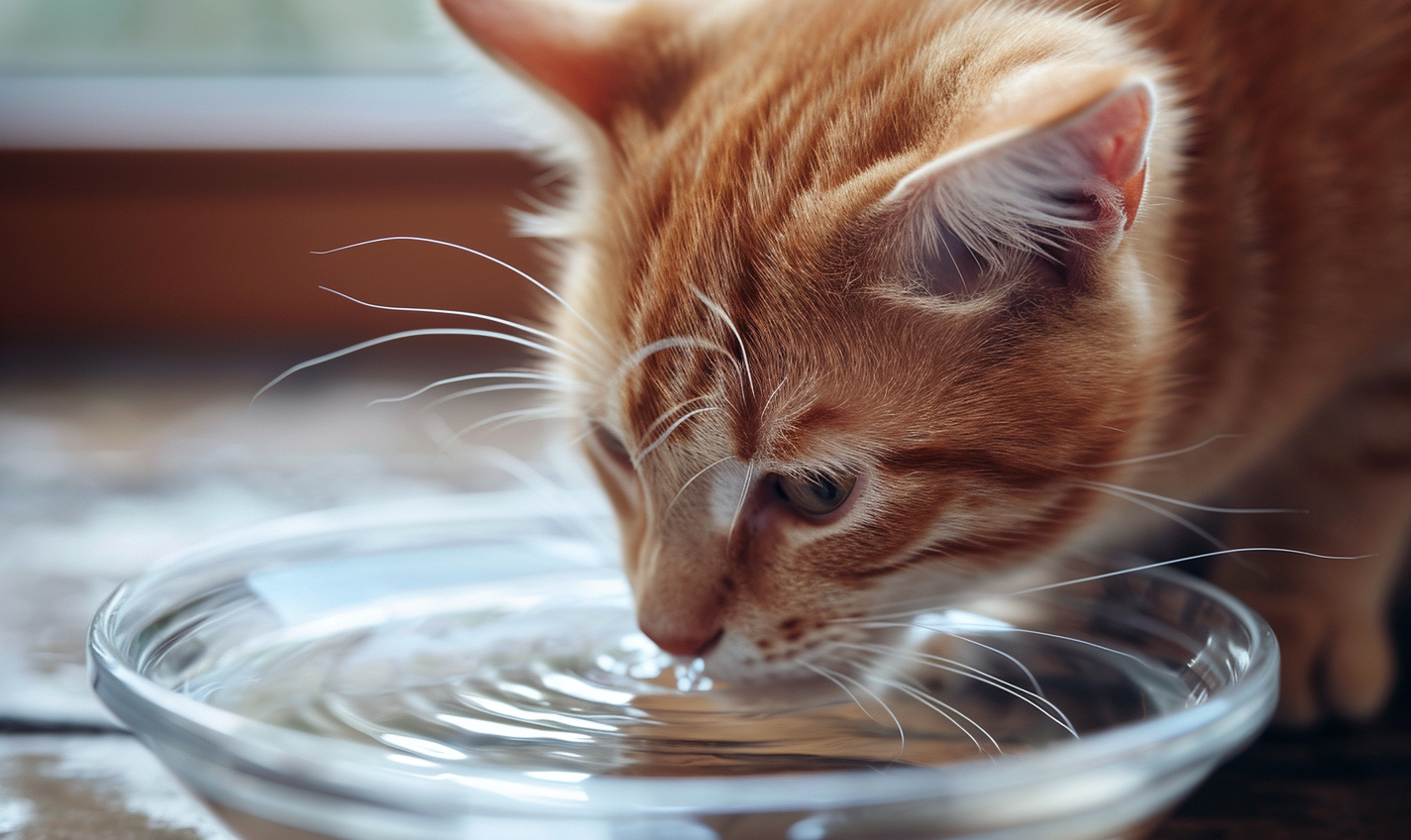
When Should I Call the Vet?
If your cat’s vomiting goes on for more than 24 hours, especially if they are an older or vulnerable cat, you should make an appointment with your vet, or/especially if there are more serious symptoms, like diarrhea, bloody vomit, weight loss, or if your pet seems to be in pain or doesn’t want to eat anything.
Vomit can also cause dehydration, which can be dangerous if the vomiting persists, as mentioned above. Your vet should perform a thorough physical examination, and depending on the symptoms, they may ask you to bring a sample of the vomit with you to the vet to run tests. They may also want to perform other tests, such as an X-ray or blood test.
When is it an emergency?
If your cat is drooling, can’t poop, has seizures, or is unresponsive after vomiting, you should take them to see the emergency vet as soon as possible as these are signs of a medical emergency.

FAQs
Is it normal for kittens to vomit?
A little vomit is not abnormal in young kittens every now and then, like with most baby mammals, their growing bodies are sensitive and can react to digesting solid/new food for the first time. However, if it keeps happening or is accompanied by other symptoms, you should consult a vet.
Why is my cat throwing up bile?
A cat throwing up bile typically indicates stomach irritation and is most often due to the stomach being empty for too long.
What is Bilious Vomiting Syndrome?
Bilious Vomiting Syndrome is an incurable condition in which pets, typically dogs, throw up during the night or early in the morning on an empty stomach. We haven’t included it in our list of common causes because it typically affects dogs and is extremely rare in cats. The root cause of it is unknown but it’s believed to be related to a motility issue with the GI tract. While there is no cure, smaller, more frequent meals and bedtime snacks can help to alleviate the symptoms.
Why is my cat’s vomit like coffee grounds?
Cat vomit that is black or brown and looks like coffee grounds often indicates bleeding in the digestive tract, which can mean several things, including stomach ulcers and foreign bodies.
Can cats throw up on purpose?
Whilst some owners online insist that their cat throws up on purpose for attention, we recommend seeking veterinary advice if your cat keeps throwing up for no reason. If you think your cat is also lonely you should give them some TLC, invest in some enrichment products, and make sure you spend quality time together on a regular basis.
Final Thoughts On Why Your Cat Keeps Throwing Up
Understanding your cat’s body and behavior is an essential part of being a good owner. Throwing up isn’t normal, but it isn’t necessarily a sign of something serious. However, if it persists or is accompanied by other symptoms, you should speak to your vet as soon as possible.

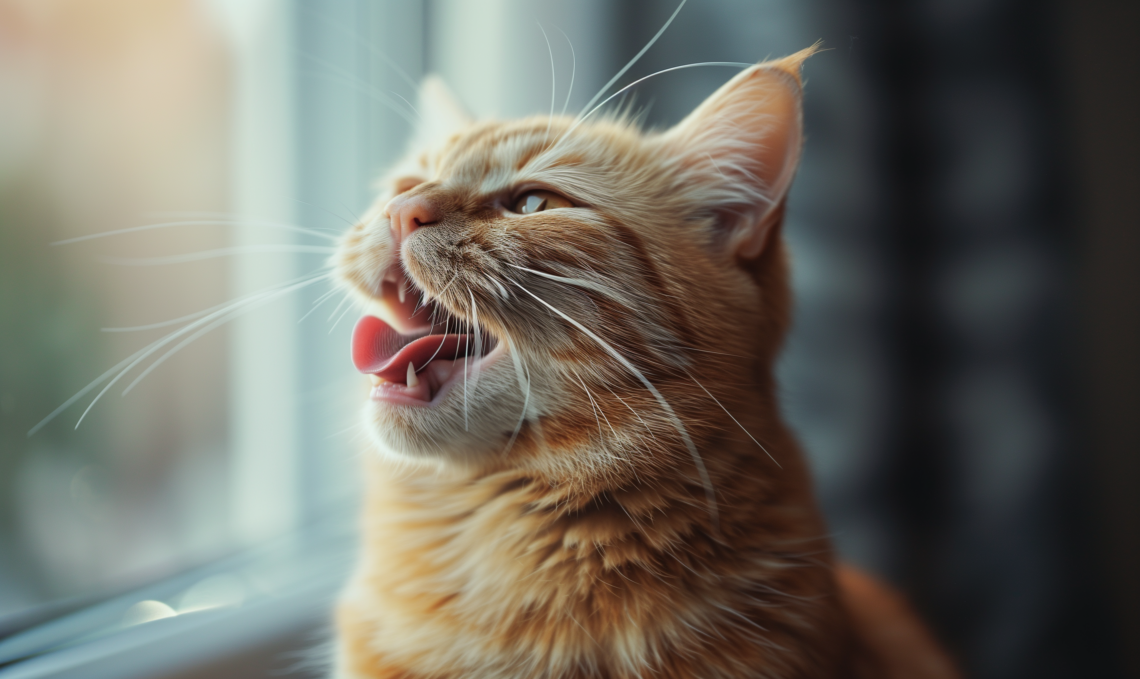







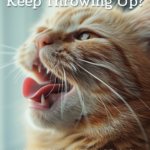
Leave a Comment